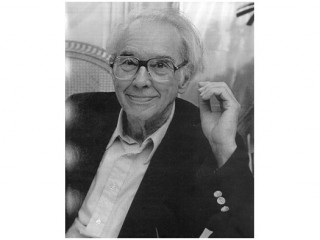
John Atanasoff biography
Date of birth : 1903-11-04
Date of death : 1995-06-15
Birthplace : Hamilton,New York,U.S.
Nationality : American
Category : Science and Technology
Last modified : 2011-10-04
Credited as : Inventor, Physicist,
1 votes so far
The 1973 decision of the patent suit Honeywell v. Sperry Rand named him the inventor of the first automatic electronic digital computer. His special-purpose machine has come to be called the Atanasoff-Berry Computer.
American physicist and mathematician John Atanasoff was arguably but legally the inventor of the modern computer. He earned his doctorate in advanced physics at the University of Wisconsin in 1930, but yearned for a better alternative to the tedious mathematical calculations involved in preparing his thesis. Once he had settled in to a teaching career at Iowa State, he began working on a calculating machine that could perform such mathematical tasks. Working with his student Clifford Berry in the mid 1930s, he developed and built a device, now called the Atanasoff-Berry Computer (ABC), which used binary math functions to resolve differential equations.
Atanasoff welcomed John William Mauchly for a visit at ISU in 1941, and Mauchly spent several days scrutinizing the ABC, though he said later that the machine was less impressive than he had anticipated. Mauchly and John Presper Eckert went on to develop the much larger and more advanced ENIAC (Electronic Numerical Integrator and Computer). The ENIAC was hailed as the first modern computer, and Mauchly and Eckert became famous and moderately wealthy before their work was eclipsed by other pioneering computers.
Unfortunately for Atanasoff, the Atanasoff-Berry Computer garnered no headlines, and after building it and showing it to Mauchly, there was no real chance to tinker further and make design improvements - World War II intervened. Atanasoff was recruited for national defense work, first at the Naval Ordnance Laboratory in Maryland and later in the US military's atomic bomb tests at Bikini Atoll. As the war raged the Atanasoff-Berry Computer gathered dust, and when he returned to Iowa State he discovered to his dismay that the machine had been completely disassembled and scrapped by the school's staff.
Meanwhile, the patents for the Atanasoff-Berry and Eckert-Mauchly projects were sold to separate corporate entities. As computers became more economically viable those patents became extremely valuable, leading perhaps inevitably to a 1973 lawsuit, Honeywell v. Sperry Rand. Honeywell held the patent filed by Iowa State for Atanasoff and Berry's work, and Sperry Rand held the patent filed by Eckert and Mauchly. The judge's ruling was considered controversial then and even now, but the Eckert-Mauchly patent was invalidated, and the court determined that ENIAC was largely derived from the Atanasoff-Berry Computer.
The true inventor of the modern computer remains debatable, and no matter who gets the credit, it probably comes with an asterisk. Atanasoff's contribution was clearly significant - the ABC was the first advanced mechanism to separate data processing from memory, the first to utilize vacuum tubes, and the first to use rotating drums containing capacitors holding the electrical charge for memory. It did not, however, have a central processing unit like modern computers, it could not be programmed, and it could not perform calculations nearly as quickly and reliably as the far better known ENIAC.
After World War II, Atanasoff established the Ordnance Engineering Company, which has since been absorbed into GenCorp, and he later worked as an executive for other technology firms. With the court ruling in 1973 that the ABC, not ENIAC, had been the first automatic electronic digital computer, he became a minor celebrity. He was accorded several scientific awards, honorary degrees, and his name became part of computer history, but Atanasoff derived no financial recompense from the verdict in Honeywell v. Sperry Rand. He died in 1995.
Honors and awards:
Cybernetics Inc President (1961-81)
GenCorp VP, AeroJet Corp. (1956-61)
GenCorp Founder & President, Ordnance Engineering Corp. (1952-56)
Navy Distinguished Service Medal 1945
Computer Pioneer Award 1981
ASME Alexander Holley Medal 1985
National Medal of Technology 1990
Bulgarian Academy of Sciences Foreign Member
















